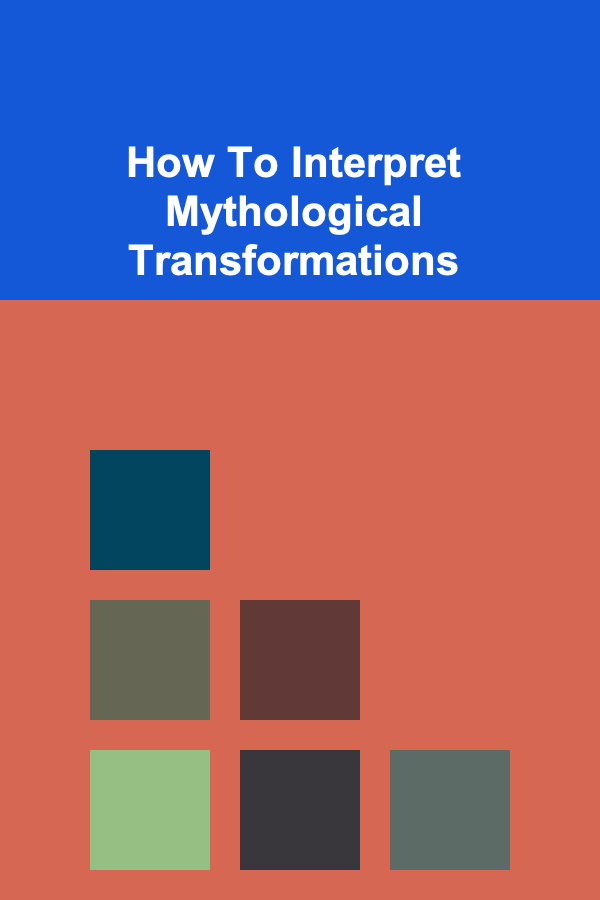
How To Pick the Perfect Philosophical Novel
ebook include PDF & Audio bundle (Micro Guide)
$12.99$6.99
Limited Time Offer! Order within the next:

The philosophical novel is a unique and rewarding genre that seamlessly blends the art of storytelling with the profound exploration of philosophical ideas. Unlike dry academic treatises, these novels engage readers emotionally and imaginatively, making complex concepts accessible and relatable. However, navigating the vast landscape of philosophical novels can be daunting. With countless titles vying for attention, how do you choose a book that will truly resonate with your intellectual curiosity and personal values?
This guide provides a comprehensive framework for selecting the perfect philosophical novel, considering various factors such as your philosophical interests, reading preferences, the depth of philosophical engagement, the author's perspective, and the novel's literary merit. By thoughtfully considering these aspects, you can embark on a literary journey that is both intellectually stimulating and deeply enriching.
Identifying Your Philosophical Interests
The first step in selecting a philosophical novel is to identify your specific areas of philosophical interest. Philosophy is a broad field encompassing numerous sub-disciplines and schools of thought. Understanding your preferred areas of inquiry will significantly narrow down your options and increase the likelihood of finding a novel that captivates your mind.
1.1. Exploring Different Philosophical Domains
Consider the major branches of philosophy and whether any of them particularly pique your interest:
- Ethics: Explores moral principles, values, and the nature of right and wrong. Novels in this category often delve into questions of justice, fairness, responsibility, and the meaning of a good life.
- Epistemology: Investigates the nature of knowledge, belief, and justification. These novels might explore the limits of human understanding, the reliability of perception, and the problem of skepticism.
- Metaphysics: Deals with fundamental questions about reality, existence, and the nature of being. Novels in this category often grapple with issues such as free will, determinism, the existence of God, and the nature of consciousness.
- Political Philosophy: Examines the nature of government, justice, rights, and the ideal society. These novels often explore themes of power, authority, freedom, equality, and the relationship between the individual and the state.
- Aesthetics: Explores the nature of beauty, art, and taste. Novels in this category might delve into questions about the role of art in society, the nature of artistic expression, and the subjective experience of beauty.
- Existentialism: Focuses on individual freedom, responsibility, and the meaning of existence in a seemingly absurd world. Novels in this category often explore themes of alienation, anxiety, authenticity, and the search for meaning.
You might be interested in multiple areas of philosophy, or your interests may evolve over time. The key is to have a starting point that guides your initial exploration.
1.2. Focusing on Specific Philosophical Themes and Questions
Within each philosophical domain, there are countless specific themes and questions that might resonate with you. Consider some examples:
- Ethics: Do the ends justify the means? Is there an objective moral truth? What is the nature of moral responsibility?
- Epistemology: Can we ever truly know anything? What is the role of reason and experience in acquiring knowledge? How do our biases and assumptions shape our understanding of the world?
- Metaphysics: Do we have free will? Is the universe deterministic? What is the nature of consciousness? What happens after death?
- Political Philosophy: What is the best form of government? What are the limits of individual freedom? How should societies address inequality and injustice?
- Aesthetics: What is the purpose of art? What makes something beautiful? Is beauty subjective or objective?
- Existentialism: What is the meaning of life? How should we live in the face of death? How can we find authenticity in a world that often feels meaningless?
By identifying the specific philosophical questions that intrigue you, you can search for novels that directly address these themes.
1.3. Considering Specific Philosophers and Schools of Thought
You might also be drawn to the works of specific philosophers or schools of thought. For example, you might be interested in:
- Plato: Explore themes of justice, knowledge, and the ideal society.
- Aristotle: Focus on ethics, virtue, and the nature of happiness.
- Kant: Delve into questions of morality, reason, and the limits of human understanding.
- Nietzsche: Examine themes of power, morality, and the will to power.
- Sartre: Explore existentialism, freedom, and responsibility.
- Camus: Focus on the absurd, rebellion, and the search for meaning.
Many philosophical novels are directly influenced by, or even inspired by, the works of these and other influential thinkers. Researching the philosophical underpinnings of different novels can help you find books that align with your intellectual interests.
Evaluating the Depth of Philosophical Engagement
Philosophical novels vary significantly in the depth and intensity of their philosophical engagement. Some novels merely touch upon philosophical themes, while others delve deeply into complex philosophical arguments and concepts. Consider your tolerance for philosophical abstraction and your desire for rigorous intellectual exploration.
2.1. Superficial vs. Substantial Philosophical Exploration
Some novels use philosophical ideas as a backdrop for a compelling story, without necessarily engaging in in-depth philosophical analysis. These novels might explore philosophical themes through character interactions, plot developments, or symbolic representations, but they do not necessarily require a deep understanding of philosophical concepts.
Other novels, however, are explicitly designed to explore complex philosophical arguments and concepts. These novels often feature characters who engage in philosophical debates, explore the implications of different philosophical theories, and challenge readers to confront difficult intellectual questions.
Consider your preferred level of engagement. Are you looking for a novel that introduces you to philosophical ideas in an accessible and engaging way, or are you seeking a more rigorous and challenging intellectual experience?
2.2. Explicit vs. Implicit Philosophical Themes
Some novels explicitly address philosophical themes, often through dialogue, narration, or authorial commentary. The philosophical ideas are clearly presented and directly discussed within the text.
Other novels explore philosophical themes implicitly, through symbolism, allegory, or the portrayal of characters' inner lives. The philosophical ideas are embedded within the narrative and require the reader to actively interpret and analyze the text to uncover their meaning.
Consider whether you prefer a novel that clearly articulates its philosophical themes or one that invites you to engage in a more interpretive and analytical reading experience.
2.3. Avoiding the "Philosophy as a Gimmick" Trap
Be wary of novels that use philosophical ideas as a mere gimmick or marketing ploy. These novels might superficially reference philosophical concepts without truly engaging with their complexity or significance. They may prioritize plot and character development over philosophical exploration, leaving readers feeling intellectually unsatisfied.
Look for novels that demonstrate a genuine understanding of the philosophical ideas they explore and that use these ideas to enrich the narrative and deepen the reader's understanding of the human condition.
Considering the Author's Philosophical Perspective
Every author brings their own unique philosophical perspective to their writing. Understanding the author's background, beliefs, and biases can provide valuable insight into the novel's underlying themes and arguments. It can also help you determine whether the author's perspective aligns with your own intellectual values.
3.1. Authorial Intent and Background
Research the author's philosophical background and influences. Have they studied philosophy formally? Are they known for advocating a particular philosophical viewpoint? Understanding the author's intellectual context can help you anticipate the novel's philosophical orientation.
Look for interviews, essays, or biographical information that shed light on the author's intentions and motivations for writing the novel. What philosophical questions were they hoping to explore? What message were they hoping to convey?
3.2. Identifying Potential Biases and Preconceptions
Recognize that every author has biases and preconceptions that inevitably shape their writing. Consider how the author's personal experiences, cultural background, and political beliefs might influence their portrayal of characters, events, and philosophical ideas.
Be aware that the author's perspective is not necessarily the definitive or "correct" one. Engage with the novel critically and consider alternative viewpoints.
3.3. Exploring Diverse Philosophical Perspectives
Seek out novels that represent a diverse range of philosophical perspectives. Don't limit yourself to authors who share your own beliefs or values. Reading novels that challenge your assumptions and expose you to different ways of thinking can broaden your intellectual horizons and deepen your understanding of complex philosophical issues.
Consider exploring novels written by authors from different cultural backgrounds, philosophical traditions, and political ideologies.
Evaluating Literary Merit and Narrative Quality
While philosophical depth is essential, a great philosophical novel must also be a well-written and engaging work of literature. Consider the novel's literary merit, including its plot, characters, style, and overall narrative quality.
4.1. Plot, Character Development, and Pacing
A compelling plot is crucial for keeping readers engaged. The plot should be well-structured, with a clear beginning, middle, and end. The events should be logically connected and contribute to the overall theme of the novel.
Characters should be believable, complex, and well-developed. Their motivations should be clear, and their actions should be consistent with their personalities. The characters should also be engaging and relatable, even if they hold different beliefs or values than your own.
The pacing of the novel should be appropriate for the subject matter. Philosophical novels often require a slower, more deliberate pace to allow for thoughtful reflection and analysis. However, the pacing should not be so slow that it becomes tedious or boring.
4.2. Writing Style and Tone
The writing style should be clear, concise, and engaging. The author should use language effectively to create vivid imagery, evoke emotions, and convey complex ideas. The tone of the novel should be appropriate for the subject matter and the author's intended message.
Consider whether the author's writing style resonates with you. Do you appreciate their use of language? Do you find their tone to be engaging and thought-provoking?
4.3. The Balance Between Philosophy and Narrative
A successful philosophical novel strikes a delicate balance between philosophical exploration and narrative storytelling. The philosophical ideas should be seamlessly integrated into the narrative, enhancing the story and deepening the reader's understanding of the characters and events.
The narrative should not be sacrificed for the sake of philosophical exposition. The novel should be a compelling story in its own right, even for readers who are not particularly interested in philosophy.
Seeking Recommendations and Reviews
Before committing to a particular philosophical novel, seek recommendations and reviews from trusted sources. This can help you get a sense of the novel's quality, philosophical depth, and overall appeal.
5.1. Consulting Online Reviews and Literary Criticism
Read online reviews from reputable sources such as literary journals, academic websites, and book review blogs. Pay attention to reviews that specifically address the novel's philosophical content and its success in integrating philosophical ideas into the narrative.
Consult academic literary criticism for in-depth analyses of the novel's themes, characters, and philosophical significance. This can provide valuable insights and perspectives that you might not have considered on your own.
5.2. Seeking Recommendations from Philosophers and Academics
Ask philosophers and academics for recommendations. They can often provide valuable insights into the philosophical merit of different novels and suggest books that align with your specific interests.
Attend lectures, workshops, or book clubs that focus on philosophical novels. This can provide opportunities to discuss the novels with other readers and gain new perspectives.
5.3. Exploring "Best Of" Lists and Award Winners
Consult "best of" lists and award winners for philosophical novels. These lists often feature critically acclaimed and influential works that have stood the test of time.
However, be aware that these lists are not necessarily exhaustive or definitive. Don't be afraid to explore novels that are not widely recognized but that still resonate with your personal interests.
Examples of Philosophical Novels
To illustrate the diversity of philosophical novels, here are a few examples spanning different philosophical domains and styles:
- The Stranger by Albert Camus (Existentialism): Explores themes of absurdity, alienation, and the search for meaning in a meaningless world.
- Sophie's World by Jostein Gaarder (History of Philosophy): Introduces readers to the history of Western philosophy through a fictional narrative.
- Crime and Punishment by Fyodor Dostoevsky (Ethics, Existentialism): Delves into the moral and psychological consequences of crime and the search for redemption.
- The Trial by Franz Kafka (Existentialism, Absurdism): Explores themes of guilt, alienation, and the futility of the individual in the face of bureaucratic power.
- Atlas Shrugged by Ayn Rand (Objectivism): Presents a philosophical defense of individualism, capitalism, and the power of reason.
- The Republic by Plato (Political Philosophy): While technically a dialogue, it reads in many ways like a novel, exploring justice, the ideal state, and the nature of the soul.
- Gilead by Marilynne Robinson (Theology, Philosophy of Religion): Explores themes of faith, doubt, forgiveness, and the meaning of life through the eyes of an aging pastor.
- Never Let Me Go by Kazuo Ishiguro (Ethics, Bioethics): Raises ethical questions about cloning, human dignity, and the value of life.
This is just a small sampling of the many great philosophical novels available. Explore different authors, genres, and philosophical themes to discover the books that resonate most deeply with you.
Conclusion
Choosing the perfect philosophical novel is a deeply personal and subjective endeavor. There is no single "right" answer, and the best book for you will depend on your individual interests, preferences, and intellectual goals. By thoughtfully considering the factors outlined in this guide -- your philosophical interests, the depth of philosophical engagement, the author's perspective, the novel's literary merit, and recommendations from trusted sources -- you can increase the likelihood of finding a novel that will challenge your assumptions, expand your understanding of the world, and provide you with a deeply rewarding reading experience.
Embark on your search with an open mind and a willingness to explore new ideas. The world of philosophical novels is vast and diverse, and there are countless treasures waiting to be discovered. Happy reading!
Reading More From Our Other Websites
- [Organization Tip 101] How to Use Repurposed Furniture for Additional Storage
- [Home Holiday Decoration 101] How to Use Holiday Decor to Make Your Small Space Feel Bigger
- [Home Cleaning 101] How to Maintain a Clean Home When You Have Small Kids
- [Home Storage Solution 101] How to Use Multifunctional Furniture for Storage in Small Apartments
- [Organization Tip 101] Step-by-Step Guide to Building a Solid Foundation for Your Garden Shed
- [Personal Care Tips 101] How to Use Conditioner to Tame Frizzy Hair
- [Personal Care Tips 101] How to Use High-Intensity Interval Training (HIIT) to Lose Weight
- [Personal Finance Management 101] How to Manage Debt and Improve Your Credit Score
- [Home Rental Property 101] How to Spot Houses for Rent with a Pool: Maximizing Your Outdoor Space
- [Home Rental Property 101] How to Optimize Your Short-Term Rentals for Maximum Profitability

How to Add Festive Flair to Your Entryway with Holiday Accents
Read More
How to Create a Charity Highlight Series on Your Blog
Read More
How to Decorate Your Home with Affordable Wall Mirrors
Read More
How To Interpret Mythological Transformations
Read More
Choosing the Best Hedge Trimmer for Garden Maintenance
Read More
10 Ways to Use Technology to Manage Your Volunteer Work To-Do List
Read MoreOther Products

How to Add Festive Flair to Your Entryway with Holiday Accents
Read More
How to Create a Charity Highlight Series on Your Blog
Read More
How to Decorate Your Home with Affordable Wall Mirrors
Read More
How To Interpret Mythological Transformations
Read More
Choosing the Best Hedge Trimmer for Garden Maintenance
Read More